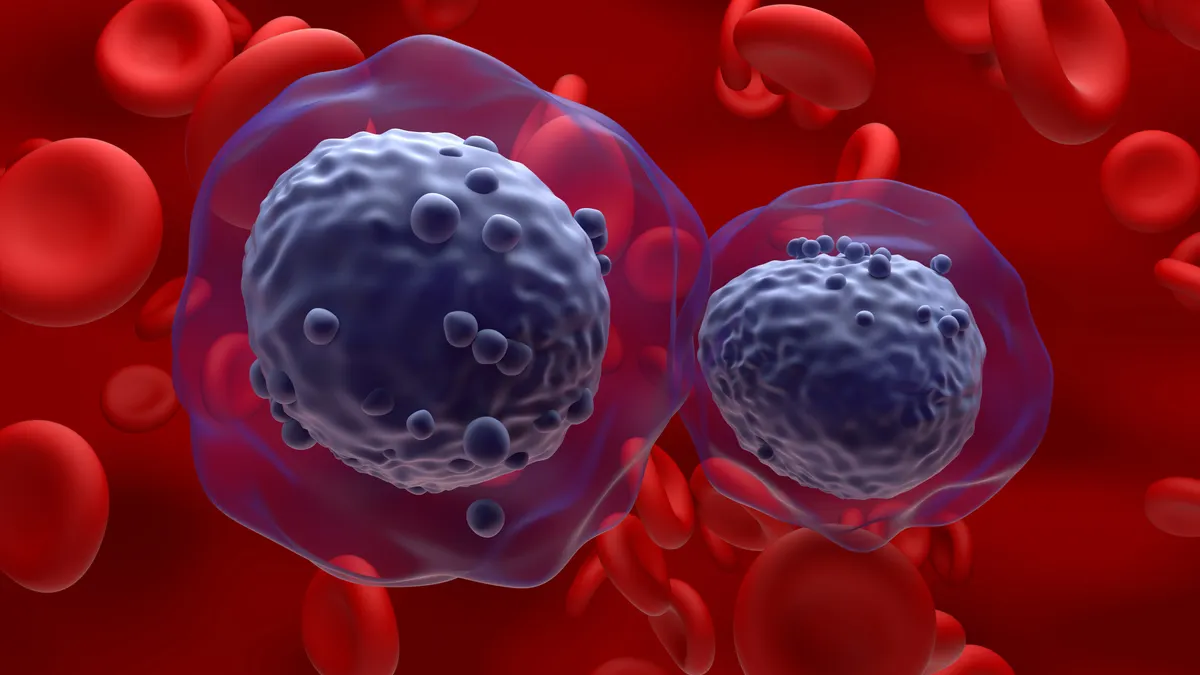Dive Brief:
- An experimental cellular medicine developed by Orca Bio outperformed a standard stem cell transplant in treating people with several types of blood cancer by helping avert a potentially dangerous side effect.
- According to clinical trial results announced by Orca on Monday, about three-quarters of people treated with the company’s T cell immunotherapy did not experience moderate-to-severe chronic graft-versus-host disease through one year, compared to only 38% of those given the standard transplant.
- Graft-versus-host disease, or GvHD, is a serious complication of transplants involving cells sourced from matched donors. Orca aims to develop its therapy, which uses a purified mix of donor-derived T cells and stem cells, as a safer transplant alternative in cancers like acute myeloid leukemia.
Dive Insight:
For certain blood cancers, a stem cell transplant can be an effective treatment, replacing diseased or destroyed cells with healthy ones. But balancing those benefits with the risks of transplant, such as GvHD, is difficult.
In GvHD, the transplanted stem cells from a donor attack the cells of the person receiving treatment, leading to potentially dangerous damage to a range of organs. While this risk is reduced somewhat by using “matched” donors, who share certain genetic markers with the patient being treated, GvHD remains a challenge and, for some, an unacceptable trade-off.
Orca’s therapy, dubbed Orca-T, is built from a purified blend of regulatory T cells, a specific type of stem cell and conventional T cells sourced from the peripheral blood of a donor.
So far in testing, it appears Orca-T could be a superior option to standard stem cell transplants, at least for people with acute myeloid leukemia, high-risk myelodysplastic syndrome and mixed-phenotype acute leukemia. Just under 190 people with one of those three cancer types were enrolled in Orca’s Phase 3 study and randomized to receive either Orca-T or standard transplant.
Investigators in the trial followed each group and after one year measured survival without moderate-to-severe GvHD. Seventy-eight percent of people treated with Orca-T met this mark, more than double the 38% among the control group.
Overall, 94% of patients in the treatment arm survived, compared to 83% of those in the control. This difference was not statistically significant, however.
Over the course of the study period, 13% of participants given Orca-T experienced moderate-to-severe GvHD, while 44% of those who received standard transplant did. The rate of severe acute GvHD was also lower in the treatment arm (6%) than the control (17%).
Orca manufactured its treatment in a centralized facility and delivered it to patients at 19 treatment sites in the U.S within three days of donor cell collection.
“We are working closely with the FDA and expect to submit a Biologics License Application this year,” said Orca CEO Ivan Dimov, in a statement.
Orca plans to present full study results at a medical conference on April 2.











